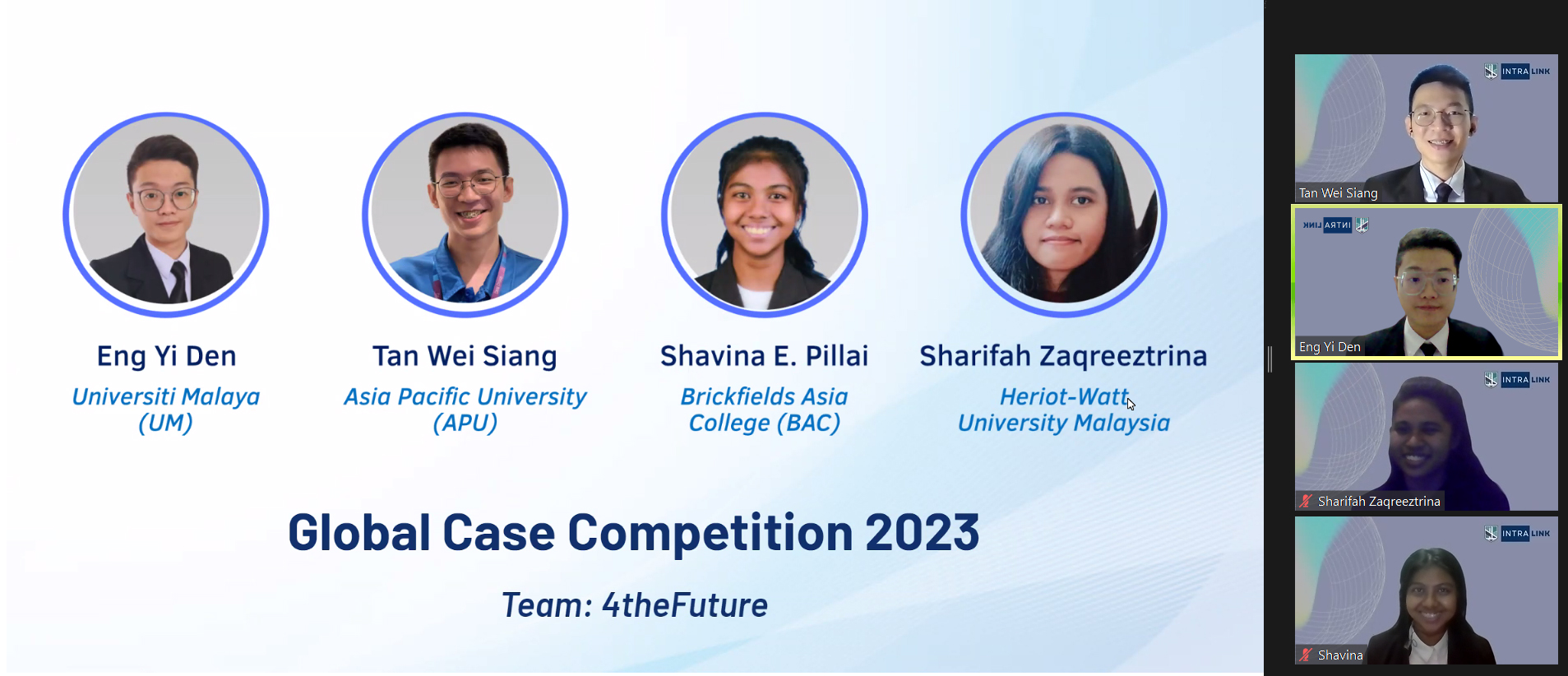You are here
APU Student Wins 4th Place In Global Case Competition, 2023
A networking system to ease employee onboarding and enhance skills through gamification for Gen Z recruits
Tan Wei Siang, a final year student from Asia Pacific University of Technology & Innovation’s Bachelor of Science (Hons) in Software Engineering, managed to clinch fourth place with his team at the Global Case Competition (GCC).

Tan Wei Siang, a Bachelor in Software Engineering student from APU and three team members from the other local public and private universities qualified for the final round at the Global Case Competition (GCC) 2023 and were announced as the fourth place winner on 29th January.
Wei Siang and Team “4theFuture” won this position out of more than 300 teams for this proposed solution to a complex business case study. The competition comprised more than 1000 participants from various institutions including the world’s top 10 universities. The contestants were judged by very prominent experts in their respective fields of expertise.
GCC is a challenging and unique contest organised by High Bridge (the brainchild of Flavio Soriano, an ex-consultant of McKinsey & Company) to empower young learners through critical thinking.
Wei Siang and his collaborators from three other local universities presented their brilliant idea called Intralink. The team was given a complex business case study and was given a week to propose a solution. The case was cracked with an astonishing proposal which is to create a networking system for Gen Z recruits.
The duration of the competition was one month. All the team members relied on each other’s strengths to produce detailed procedural planning for the proposal. On 29th January, the final journey was a triumph for the team. Congratulations, to Tan Wei Siang and his team!
Read More:
Wei Siang was not alone in this quest as there were participants from three other local universities; Eng Yi Den from Universiti Malaya (UM), Shavina E. Pillai from Brickfields Asia College (BAC) and another representative from the Heriot-Watt University, Sharifah Zaqreeztrina presented their brilliant idea.
Intralink, as the name spells out, is a system to link recruits with other fellow employees within and outside of the organisation for them to maintain relevancy in the industry and to overall ease the onboarding process.
Intralink’s striking feature is its ability to enhance the skills of the users through the gamification method and it is customisable for employers. It is also highly interactive as the recruits could voice out their concerns or call for help via the chat box feature for peer-to-peer engagement.
Wei Siang shared his experience:
1. Tell us about how you came about incorporating the gamification idea.
This idea was attractive to all of us. Being a Software Engineering undergraduate, the element of gamification is nothing new and the excitement to have such a component as a recruit was like an adrenalin rush. When I narrated how the experience could be, the rest of them started expanding the idea from their respective field of study. Yi Den and Sharifah were working together on the business development aspect, whereas Trina’s forte was developing the application. We read journal articles and made some extended references to established applications related to networking.
2. What challenges did you face during the competition?
Being a student, all four of us have mastered the art of getting things done towards the eleventh hour. This was different though. There were bad days, hard days where we even reached a point where losing was a possibility. We were battling against time. We motivated each other and kept telling ourselves that it was about doing our best.
3. What are your takeaways from the competition?
There is no boundary between creativity and innovation. If you are willing to go further, you will gain. In our situation, we managed to meet experts from many established consultancies. Participating in this competition is like our passport to access some of the top employers. I have listed a few prospective companies on my list now itself. A competition like this widens our skill sets and prepares us as future-proof workforce professionals.


